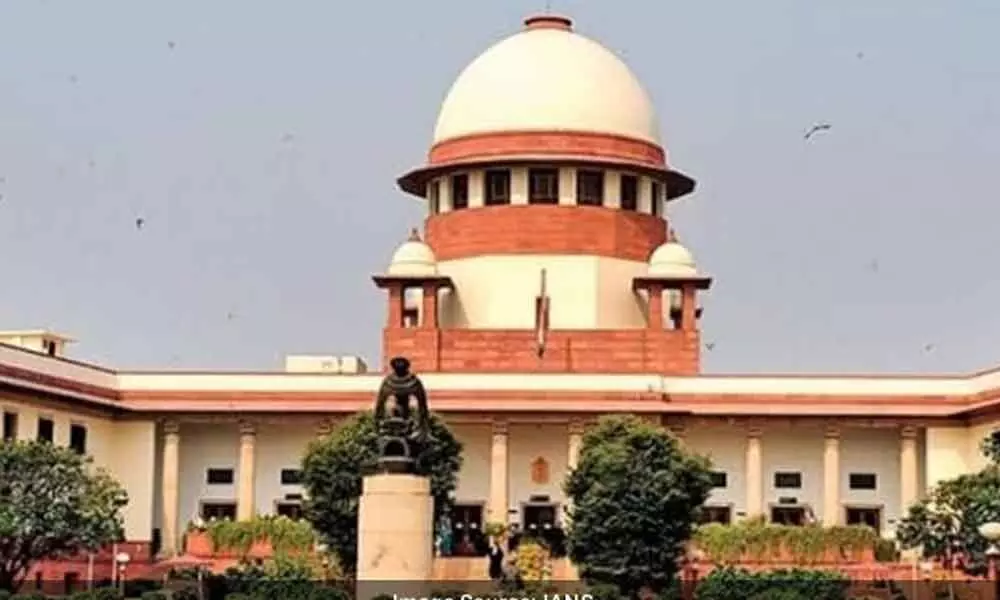Acquittal in criminal case does not bar employer from proceeding with disciplinary enquiry: SC

Supreme Court
Apex court allows appeal against K’taka HC order setting aside KAT decision on retirement of employee
New Delhi: The acquittal of an accused in a criminal case does not debar the employer from proceeding in exercise of disciplinary jurisdiction, the Supreme Court said on Tuesday.
The rules of evidence which apply to a criminal trial are distinct from those which govern a disciplinary enquiry, the apex court said. A bench of Justices D Y Chandrachud and Surya Kant allowed the appeal against the November 2017 judgement of the Karnataka High Court which had set aside the verdict of the Karnataka Administrative Tribunal directing compulsory retirement of an employee from service following a disciplinary enquiry on the charges of bribery. "Unlike a criminal prosecution where the charge has to be established beyond reasonable doubt, in a disciplinary proceeding, a charge of misconduct has to be established on a preponderance of probabilities," the bench said. The top court observed that in a prosecution for an offence punishable under the criminal law, the burden lies on the prosecution to establish the ingredients of the offence beyond reasonable doubt. The bench said purpose of a disciplinary proceeding by an employer is to enquire into an allegation of misconduct by an employee which results in violation of the service rules governing the relationship of employment. "The acquittal of the accused in a criminal case does not debar the employer from proceeding in the exercise of disciplinary jurisdiction," it said while setting aside the high court verdict. The apex court delivered its verdict on the appeals arising out of the high court's November 2017 judgement. It noted that the man was working as a village accountant in Bijapur district in Karnataka and the charge against him was that he had demanded bribe for deleting the name of a person with regard to a land situated in a village. A criminal complaint was registered with the Lokayukta police against him for the commission of alleged offences punishable under provisions of the Prevention of Corruption Act. Following investigation, a charge sheet was filed against him in a court which later acquitted him of all charges in October 2013. A disciplinary enquiry was initiated under Section 7(2) of the Karnataka Lokayukta Act, 1984 and the Karnataka Upa Lokayukta, while holding that a prima facie case was established, recommended initiation of disciplinary proceedings against him. Later, in January 2015, the Lokayukta held that the charge against him was proved and recommended the penalty of compulsory retirement from service. The disciplinary authority issued a show cause notice to the man who contended that since the special judge had acquitted him on the same set of facts and evidence, there was no ground to hold him guilty of misconduct in the disciplinary proceedings. The disciplinary authority had on June 2015 held that the misconduct was proved and imposed a penalty of compulsory retirement. The man then moved the Karnataka Administrative Tribunal which upheld the order of compulsory retirement. The matter then reached the high court. In its verdict, the apex court said that in the exercise of judicial review, the court does not act as an appellate forum over the findings of the disciplinary authority. ' "The court does not re-appreciate the evidence on the basis of which the finding of misconduct has been arrived at in the course of a disciplinary enquiry," the bench said. It said the court in exercise of judicial review must restrict its review to determine whether -- the rules of natural justice have been complied with, finding of misconduct is based on some evidence, statutory rules governing the conduct of disciplinary enquiry have been observed, findings of disciplinary authority suffer from perversity and the penalty is disproportionate to the proven misconduct. "However, none of the above tests for attracting the interference of the high court were attracted in the present case. The Karnataka Administrative Tribunal having exercised the power of judicial review found no reason to interfere with the award of punishment of compulsory retirement," it said. The top court said the high court "exceeded its jurisdiction" under Article 226 of the Constitution and trenched upon a domain which falls within the disciplinary jurisdiction of the employer. It noted that enquiry was conducted in the matter in accordance with the principles of natural justice. "The acquittal of the respondent in the course of the criminal trial did not impinge upon the authority of the disciplinary authority or the finding of misconduct in the disciplinary proceeding," it said, adding, "The finding of misconduct and the punishment of compulsory retirement are restored." PTI








